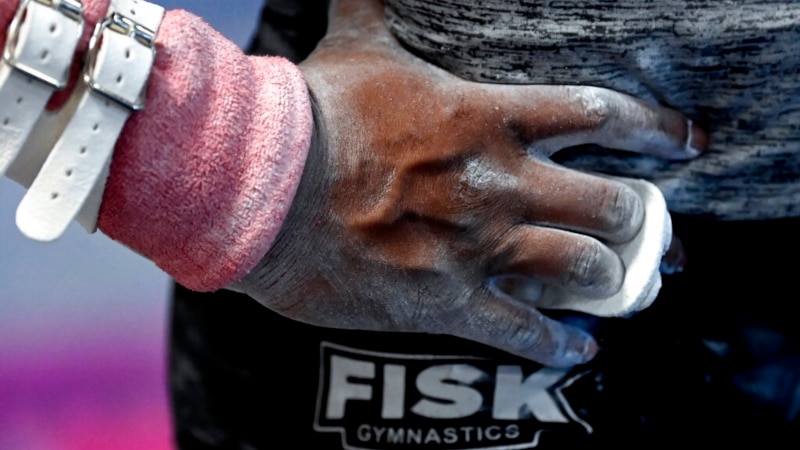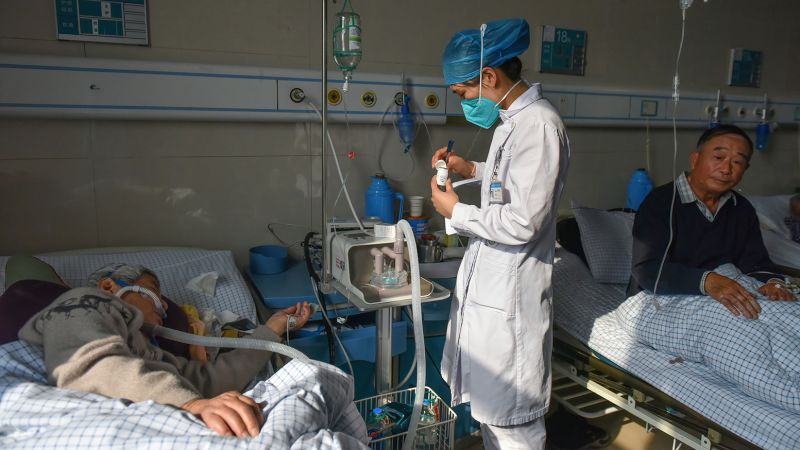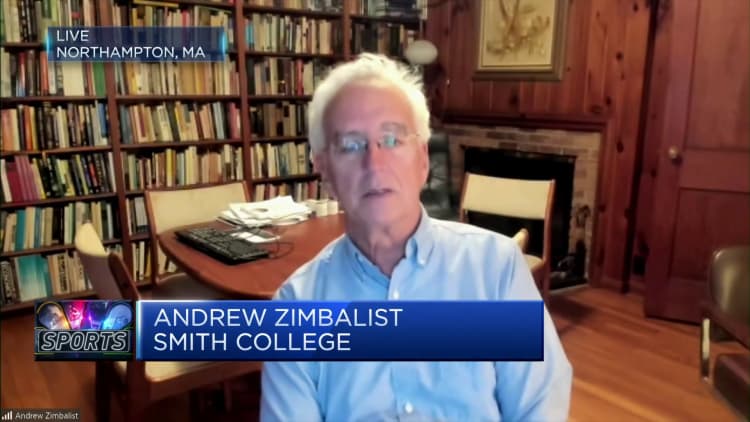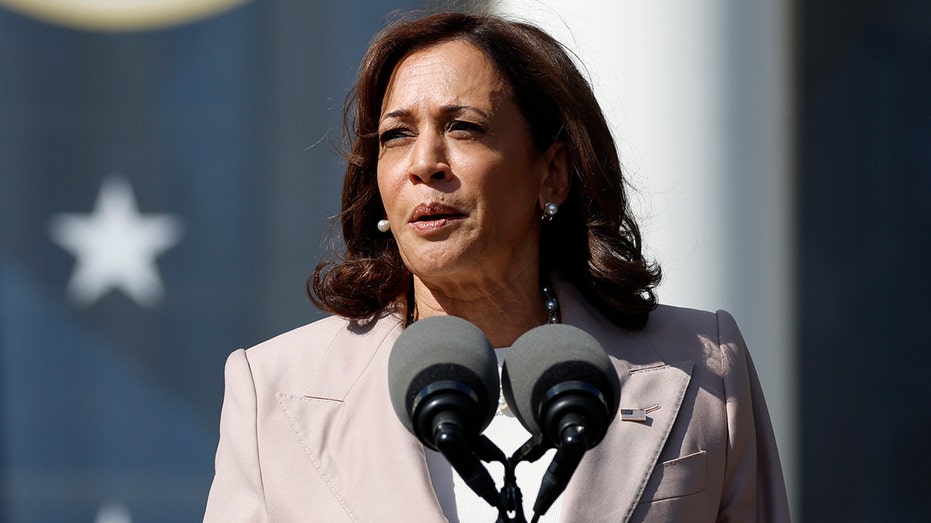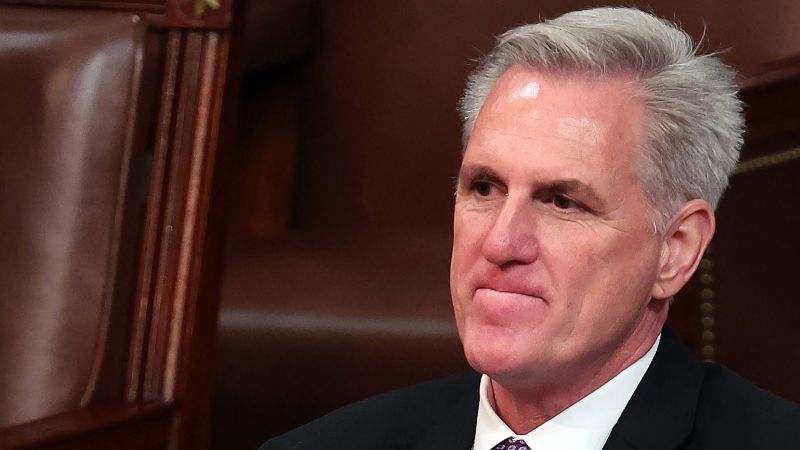USA – Voice of America
Jordynn Cromartie entered her senior year of high school facing a daunting choice, one countless other Black gymnasts have faced for decades.
The teenager from Houston wanted to attend a historically Black college or university. And she wanted to compete in the sport she’s dedicated most of her life to.
One problem. She knew she couldn’t do both, something Cromartie brought up over Thanksgiving dinner while talking to her uncle, Frank Simmons, a member of the Board of Trustees at Fisk University, a private HBCU of around 1,000 students in Nashville, Tennessee.
“He and my aunt were like, ‘Oh you haven’t made a decision, you should come to Fisk,’” Cromartie said. “I’m like, ‘Well, they don’t have a gymnastics team.’ To go to a college that doesn’t have what I would be working for forever was crazy to me.”
Simmons, stunned, made a promise to his niece.
“Watch,” he told her. “I’ll make it happen.”
In the span of a few weeks, Simmons connected Derrin Moore — the founder of Atlanta-based Brown Girls Do Gymnastics, an organization that’d been trying to drum up support for an HBCU for years — with Fisk’s trustees. One trustee listened to Moore’s pitch and offered to make a $100,000 donation on the spot if Fisk adopted the sport.
And seemingly in a flash, all the roadblocks and misconceptions Moore had encountered while spending the better part of a decade trying to persuade an HBCU to take the leap on an increasingly diverse sport evaporated.
On Friday afternoon at Orleans Arena in Las Vegas, barely 14 months after Fisk committed to building a program from the ground up, Cromartie — now a freshman at her uncle’s alma mater — and the rest of her teammates will make history when they become the first HBCU to participate in an NCAA women’s gymnastics meet. The Bulldogs will compete against Southern Utah, North Carolina and Washington as part of the inaugural Super 16, an event that also includes perennial NCAA powers like Oklahoma, UCLA and Michigan.
“I feel like it’s nice to show that Black girls can do it, too,” Cromartie said. “We have a team that’s 100% of people of color and you’ve never seen that before anywhere. … I feel like we have a point to prove.”
The face of high-level women’s gymnastics is changing. While athletes of color have excelled at the sport’s highest level for decades, participation among Black athletes has spiked over the last 10 years thanks in part to the popularity of Olympic champions Gabby Douglas and Simone Biles.
Black gymnasts account for around 10% of scholarships at the NCAA Division I level, an increase from 7% in 2012, when Douglas became the first Black woman win to Olympic gold. More than 10% of USA Gymnastics members self-identify as Black.
It’s a massive jump from when Corrinne Tarver became the first Black woman to win an NCAA all-around title at Georgia in 1989.
“When I first went to school, there were a scattering of (Black gymnasts),” said Tarver, now the head coach and athletic director at Fisk. “One on this team, one on that team … there wasn’t a lot of African-American gymnasts around back then compared to today.”
Still, it caught Umme Salim-Beasley off guard when she began exploring her college options in the early 1990s. Salim-Beasley grew up in the Washington, D.C., area and competed in the same gym as four-time Olympic medalist Dominique Dawes. Salim-Beasley wanted to go to an HBCU. When she approached an HBCU recruiter at a college fair and told the recruiter she was a gymnast, the response she received shocked her.
“They didn’t see it as a sport for women of color,” said Salim-Beasley, who ended up competing at West Virginia and is now the head coach at Rutgers. “And that was the perception, that gymnastics was not a sport that was welcoming or had enough interest from women of color.”
Which has made the response to Fisk’s inaugural class even more rewarding.
For years, Moore and Salim-Beasley — a member of the advisory council at Brown Girls Do Gymnastics — would struggle just to set up exploratory interviews with HBCU athletics officials. In the months since Fisk’s program launched, Moore and Salim-Beasley have talked to presidents at nine HBCUs.
“People are really interested,” Moore said. “They still have a lot of questions and still not pulling the trigger, but they are reaching out.”
All of which puts Fisk in an enviable if challenging spot. The program is a beta test of sorts as other HBCUs watch from afar to see how Fisk handles the massive logistical and economic hurdles that come with launching a program.
The Bulldogs don’t have an on-campus facility and are currently training at a club gym a few miles from campus, though they are fundraising in hopes of remedying that soon. They are competing this year as an independent while waiting to get their NCAA status sorted out.
And Tarver immediately threw the program into the deep end of the pool. Their inaugural schedule includes meets at Michigan, Georgia and Rutgers.
“It would have been really easy to just put in schools that were not as strong and then make our whole schedule like that and then just hope for the best,” Tarver said. “But I didn’t want to do that. I wanted them to realize that they belong on that stage.”
In that way, Tarver is following through on her recruiting pitch last spring, when she spent hours on Zoom asking young women of color to believe in something that had never existed before.
“Basically, I pitched them on the dream,” Tarver said. “I told them they’ll be a part of history. Their names will go down in history as the first HBCU ever.”
It proved to be a far easier sell than Tarver imagined.
Morgan Price initially committed to Arkansas so she could compete with her older sister, Frankie. Yet once Fisk announced it was going to take the ambitious step of competing in 2023, Price felt drawn to the opportunity.
“Since we are the first, it’s kind of special,” Price said. “We get to build it from the ground up.”
And yes, the perks of being the first don’t hurt. Several Bulldogs appeared on Jennifer Hudson’s talk show in the fall. An Emmy-winning documentarian is following them throughout the season. The splash on social media has been sizable.
So has the splash in real life. When Price returned to her club gym in Texas shortly after committing to Fisk, the energy she felt from younger gymnasts of color as they peppered her with questions was palpable.
“They were telling me, ‘I can’t wait until I can be recruited so I can be an HBCU gymnast as well,’” Price said.
That’s the big-picture plan. Moore is optimistic several HBCU schools will follow in Fisk’s footsteps soon.
They just won’t be the first. That honor will go to the women in the blue-and-gold leotards who will salute the judges for the first time Friday, as the team filled with athletes who “come from backgrounds where they were kind of told that they weren’t as good,” as Tarver put it, makes history.
Athletes who no longer have to choose between heritage and opportunity.
“Already being an HBCU, we’re the underdogs,” Cromartie said. “We haven’t had much time to practice. We don’t have the resources of other schools yet … but we are eager to prove we can keep up with everyone else. That we belong.”

